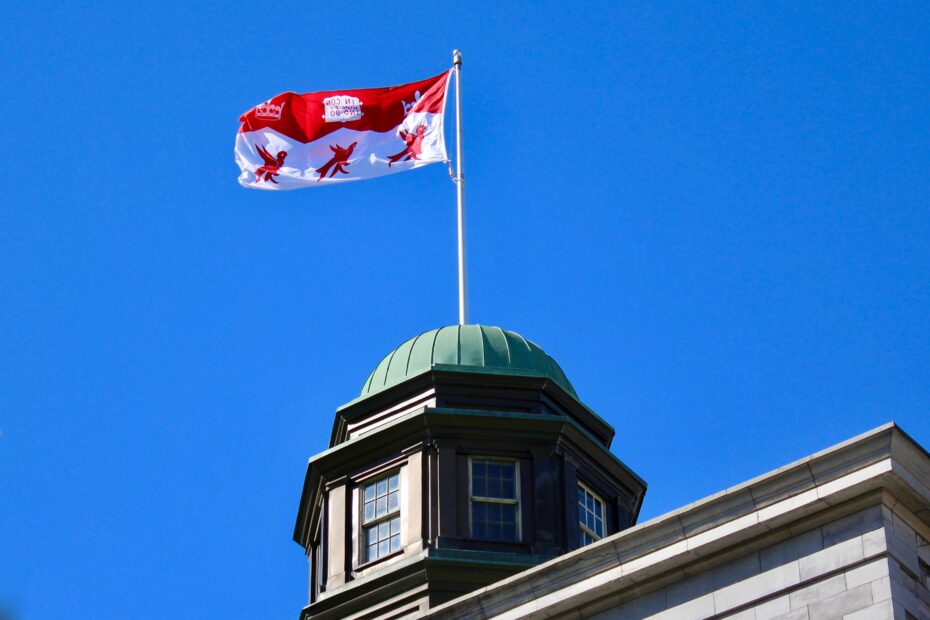
Today, the Honourable François-Philippe Champagne, Minister of Innovation, Science and Industry, announced an investment of nearly $51 million to 75 research projects across Canada through the Natural Sciences and Engineering Research Council of Canada’s (NSERC) Collaborative Research and Training Experience (CREATE) grants and Alliance grants.
McGill received $1.65 million over six years through the CREATE program for the project, One Health Against Pathogens (OHAP), led by William Dawson Scholar and Assistant Professor Jen Ronholm of the Departments of Food Science and Agricultural Chemistry and Animal Science. Ten co-applicants from McGill, the University of Saskatchewan, the University of Guelph, and l’Université du Québec à Montréal will collaborate. Additional partners include Health Canada, the Canadian Food Inspection Agency, the National Research Council of Canada and Tahatikonhsontóntie’ Québec Network Environment for Indigenous Health Research (NEIHR).
CREATE grants support multidisciplinary training and mentorship programs for teams of highly qualified students and postdoctoral fellows. Much of the funding awarded to OHAP will be used to provide stipends and scholarships to graduate students who are carrying out infectious disease research at McGill, l’Université du Québec à Montréal, the University of Saskatchewan, and the University of Guelph. One or more three-year scholarships will be provided to an Indigenous student annually.
Through the Alliance International Quantum grants program, $50,000 was also announced today for McGill-led research in the quantum sciences.
“Funding from the NSERC Create and Alliance programs generates opportunities for collaboration and growth among researchers and prepares the next generation of scientists to tackle emerging issues in public health and in the burgeoning field of quantum sciences,” said Martha Crago, Vice Principal of Research and Innovation. “My congratulations are extended to all the researchers awarded funding today.”
Training future scientists and policy makers to design a ‘One Health’ strategy against pathogens
Many domestic animal and human infections caused by food-borne, water-borne, vector-borne, and zoonotic pathogens are on the rise in Canada because of globalization, climate change, and changes in land use, such as deforestation. The COVID-19 pandemic demonstrated the devastating impact of pathogens on all sectors of society, which were disproportionately experienced among vulnerable, racialized, and marginalized communities due to underlying inequities.
The One Health Against Pathogens (OHAP) program will conduct research on how the microbiome of healthy agricultural animals can be optimized to prevent the transmission of infectious disease. Additional training in science communications and policy development will prepare OHAP graduates to contribute various skills to the Canadian workforce.
“The NSERC CREATE in One Health Against Pathogens (OHAP) will train graduate students to think holistically about the profound connections between environmental, animal, and human health, and take these connections into account when devising strategies to control the spread of infectious disease,” says Professor Jen Ronholm. “Especially for pathogens with complex transmission pathways, a “One Health” approach is needed for effective, equitable, and sustainable control that maximizes public good and minimizes harmful social, economic, health and environmental outcomes.”
Global leadership in quantum science
McGill researchers were also the recipients of $50,000 in Alliance International Quantum grants, designed to fund projects addressing important challenges in quantum science and supporting the development of quantum technologies in a variety of areas. Among the grantees are Professor Brigitte Vachon (Department of Physics) who was awarded an International Catalyst grant for her work on quantum optomechanical sensing devices, which are employed in the search for dark matter in the universe.
The Government of Canada has invested more than $1 billion in quantum research and science from 2009 to 2020—mainly through competitive granting agency programs, including Natural Sciences and Engineering Research Council of Canada programs and the Canada First Research Excellence Fund—to help establish Canada as a global leader in quantum science.
